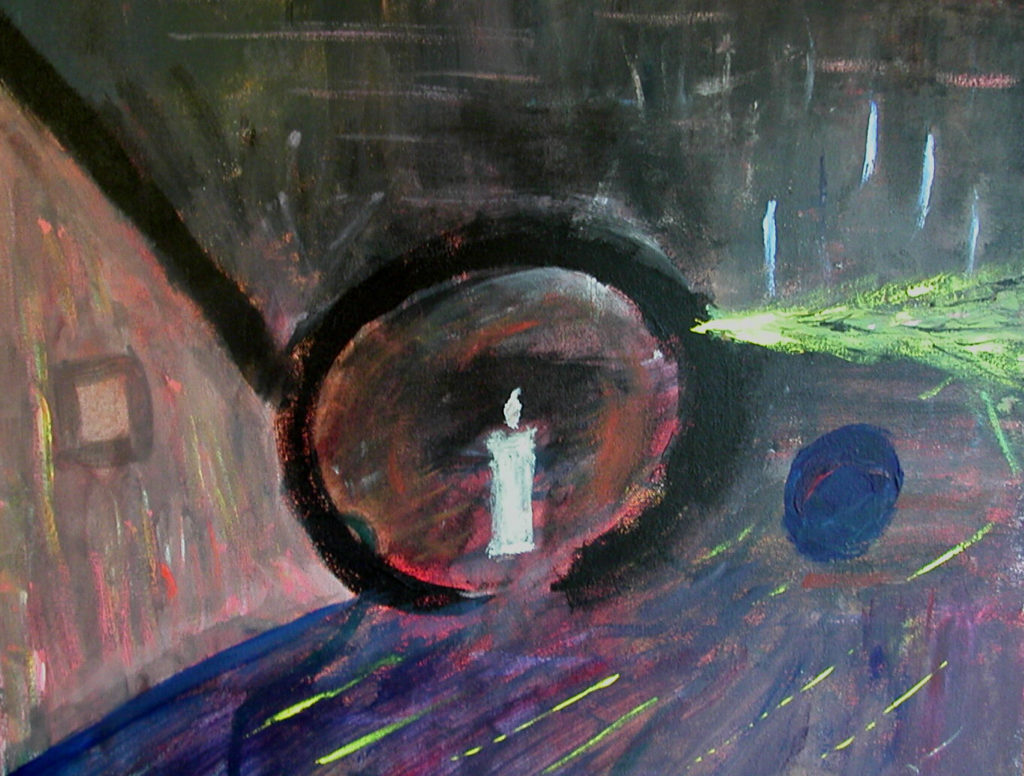
Kabbalah is:
- Literally, “receiving,” as in a received tradition. Some Kabbalistic teachings go back thousands of years, and were passed from master to disciple. Others were invented yesterday.
- Figuratively, “receiving,” as in receiving the truth of what is happening right now. The truth is, you are God reading about God, in the process of God becoming God. But chances are you don’t “receive” that truth fully, because of how your mind, body, and heart work. The forms of Kabbalah can help you really receive the truth of this moment.
- Specifically, an ancient, fascinating, and complex system of Jewish mysticism and esoteric knowledge. Rich in symbols, myth, and literary merit, the Kabbalah “library” contains thousands of books written over many centuries. Scholars generally date the beginning of this written literature to the 12th century, with additional “waves” in the 16th and early 19th centuries.
- Possibly, a way of reading texts, and the world, on multiple levels of depth. Kabbalah is all about levels of reality, and balance among them. We strive not to move from “lower” to “higher” but to integrate them; not to favor one side of our lives over another, but to balance them. Reading and seeing deeply enables us to do that.
- Contemplatively speaking, body of knowledge and practices that enable deeper understanding of the self and the universe.
Kabbalah is rooted in the Jewish tradition, which speaks of the One in terms of “God.” Yet as you will see if you learn Kabbalah, that word does not mean what you think it means. In fact, we might say that it means the opposite. Here is how I like to introduce the subject to new students.
Kabbalah, like other contemplative traditions, is often concerned with fundamental questions. What is the world? Who are we? What is the significance of our lives and actions? What is God? How can we come to know ultimate reality in our own experience? How do the body, heart, mind, and spirit fit together? And what are the roles of myth, ritual, morality, eroticism, meditation, ecstasy, sacred text, and prayer on the spiritual path?
These are some of the questions asked by the Kabbalah. You probably know that, in recent years, the Kabbalah has become very popular — even, a fad. But what is it really, behind that?
We have said that Kabbalah literally means receiving, and that this means both that Kabbalah itself is a received tradition, and that it enables us to receive the light of the Infinite. This form of dual reading — one simple, one subtle — is itself an essential feature of the Kabbalah. If you learn Kabbalah, you will learn that everything can be read on multiple levels, with the deeper meaning usually hidden behind veils. This is the nature of reality, of text, of the self — it is the nature of God. There are layers and layers to our experience, and multiple “truths” that exist on these different layers. Setting aside our conventional ideas that there is one true meaning of a thing — that’s a good first step.
Scholars often define Kabbalah as “Jewish mysticism.” Mysticism means a direct experience of Ultimate Reality — which in Western religions means, a direct experience of God. Rather than reading about God in the Bible, or praying to a God we don’t experience, a mystic meets God “face to face,” so to speak.
That scholarly definition, Jewish mysticism, is about half right. Kabbalah does contain accounts of mystical experiences, and techniques for having them yourself. These techniques work, in my experience, and you can try them too. Some of them are even explained on this website. But Kabbalah is more than just accounts of, and guides to have, mystical experiences. It also contains what might be called “esotericism,” or, deeper readings of texts and life. It contains folklore, magic, legend, myth, philosophy, guides to meditation, music.
The oldest written texts of the Kabbalah date to the second century of the common era. Many date from the medieval period, especially the thirteenth and fourteenth centuries. Many were written in the last few years. On this site, we won’t spend a lot of time progressing in historical, chronological order. However, I have created a [historical timeline] for those who are interested.
Instead, I would like to introduce you to the Kabbalah by beginning with Kabbalah’s fundamental questions, and moving from there into the details. Kabbalah is a body of knowledge that inquires into the true nature of the universe, the soul, and God, and a body of practices that enable us to experience it.